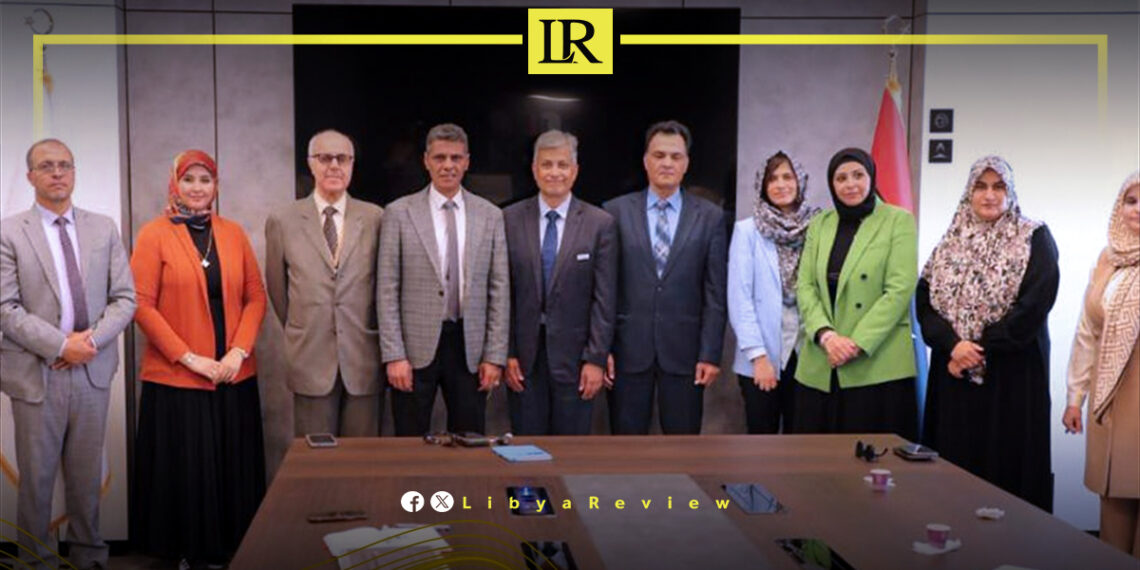The United Nations Children’s Fund (UNICEF) has held a meeting with the International Cooperation Office at the University of Benghazi to explore joint efforts to advance child protection and improve the welfare of children across Libya.
The meeting was attended by Tushar Rin, Head of UNICEF’s Benghazi Office; Sanaa Abdelkarim, Child Protection Officer; and Malek Ben Khayyal, Health and Environment Program Officer.
From the University of Benghazi, several officials and academics participated, including representatives from the International Cooperation Office, the Department of Sociology, and the Faculty of Education.
Discussions focused on potential avenues for collaboration, including the creation of a dedicated centre for children and women focused on training and research, the development of educational programmes, the protection of children from violence and exploitation, and the improvement of health and nutrition services for children. The two sides also emphasised the importance of capacity building for professionals working in child welfare.
UNICEF representatives praised the university’s efforts to support child-related causes, highlighting the value of such partnerships in improving the lives of children across Libya.
University officials, in turn, affirmed their readiness to strengthen cooperation with UNICEF, emphasising the shared goal of social development and community progress.
Libya has been in chaos since a NATO-backed uprising toppled longtime leader Muammar Gaddafi in 2011. The county has for years been split between rival administrations.
Libya’s economy, heavily reliant on oil, has suffered due to the ongoing conflict. The instability has led to fluctuations in oil production and prices, impacting the global oil market and Libya’s economy.
The conflict has led to a significant humanitarian crisis in Libya, with thousands of people killed, and many more displaced. Migrants and refugees using Libya as a transit point to Europe have also faced dire conditions.
The planned elections for December 2021 were delayed due to disagreements over election laws and the eligibility of certain candidates. This delay has raised concerns about the feasibility of a peaceful political transition.
Despite the ceasefire, security remains a significant concern with sporadic fighting and the presence of mercenaries and foreign fighters. The unification of the military and the removal of foreign forces are crucial challenges.


